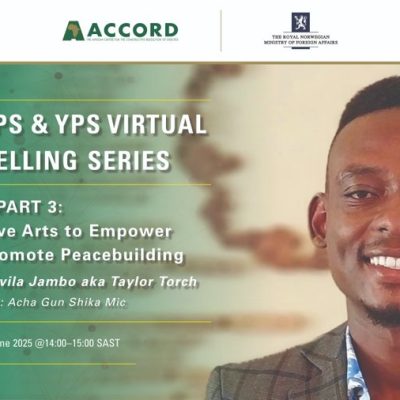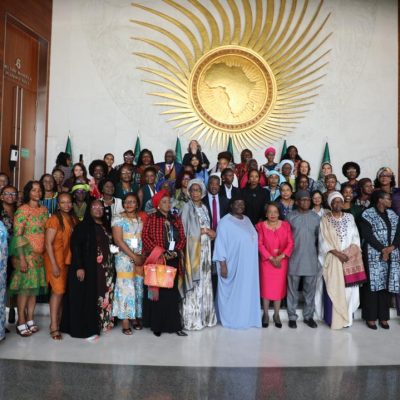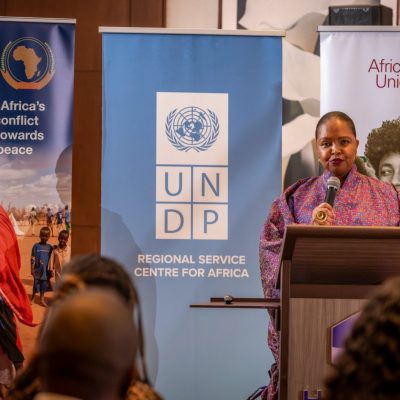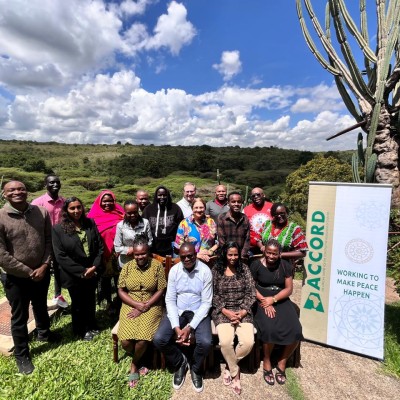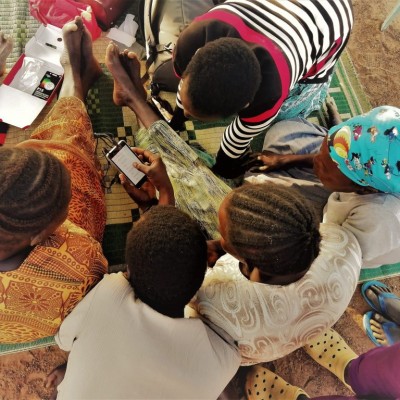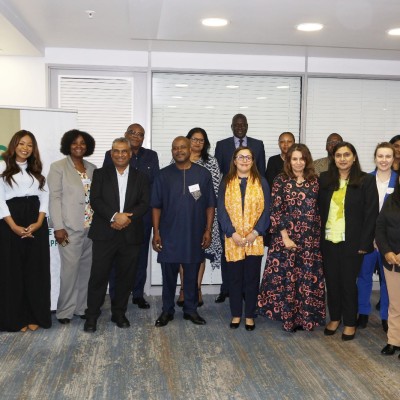The African Peacebuilding Coordination Network Training Programme
The 2013 APCN training programme consisted of three training sessions – one in Liberia, Burundi and South Sudan. This network was made up of 18 participants from Burundi, DRC, Liberia and South Sudan. The participants were from CSOs, Academica and Government in the countries mentioned above. The programme focused on the development of peacebuilding planning skills and projects.
South Sudan
This is a video of the closing of the third training in the programme, held in Juba, South Sudan.
DRC
Burundi
Peacebuilding Seminar: Towards a more coherent peacebuilding policy community
ACCORD’s African Peacebuilding Coordination Programme, funded by the Ministry for Foreign Affairs of Finland, recently created a space which brought relevant peacebuilding actors together to discuss issues of complexity, coherence and coordination within the peacebuilding policy community by holding a two-day seminar entitled “Towards a More Coherent Peacebuilding Policy Community”. This seminar was held in Johannesburg, South Africa on 19-20 February 2014. This seminar was attended by 50 participants from across the globe from Inter-Governmental Organisations, International NGOs and Civil Society Organisations, Think Tanks, Local NGOs and Civil Society Organisations as well as African and local partners. Participants included Ms. Sarah Cliffe (Assistant Secretary General for Civilian Capacity at the United Nations), Dr. Khabela Matlosa (Director of Political Affairs at the African Union), Mr. Takwa Suifon (Expert on PCRD at the African Union) and Dr. Henk-Jan Brinkman (Chief of the Policy Planning and Application Branch of the United Nations), amongst others.
Opening Session Mr. Vasu Gounden – Executive Director, ACCORD
This is the opening session of the Peacebuilding Seminar: Towards a More Coherence Peacebuilding Policy Community held in Johannesburg, South Africa on 19-20 February 2014.
Session 1
Peacebuilding Coherence Dilemma Cooperation, Coexistence or Competition
This session set the tone for the workshop with opening remarks by Dr. Cedric de Coning: Advisor to the Peacebuilding Unit, ACCORD, who unpacked what we meant by Coherence and Coordination and what this workshop aimed to achieve.
Session 2
Opportunities to Overcome the Peacebuilding Coherence Dilemma: Speaker 1: Dr. Henk-Jan Brinkman
Session two looked at perspectives of coherence and coordination dilemmas within the international community. Dr. Henk-Jan Brinkman, Chief Policy Planning and Application Branch, UN Peacebuilding Support Office, reflected on the perspective of the UN Peacebuilding Planning Office about examples of how you the Dialogue has tried to overcome the challenges posed by coherence and coordination within the peacebuilding context.
Opportunities to Overcome the Peacebuilding Coherence Dilemma: Discussant: Dr. Erin McCandless
Session two looked at perspectives of coherence and coordination dilemmas within the international community. Dr. Erin McCandless Chief Editor, Journal of Peacebuilding and Development, was the discussant for the session providing to provide some critical analysis of the “ideas” presented as well as to highlighting some common themes. We would like you to provide new ideas, to comment on the topic, and to share your own thoughts on how to encourage coherence and coordination among the international and local players involved in peacebuilding policy processes.
Session 3
Regional and local Approaches to Peacebuilding Coordination
This session looked at regional aspects of coherence and coordination focusing on the UN, g7+ and perspectives from African civil society.
Speaker:
- Dr. Samuel Doe: Policy Advisor & Team Leader, UNDP’s Bureau for Crisis Prevention and Recovery (BCPR)
- Dr. Helder de Costa: General Secretary of the g7+ Secetariat
- Dr. Tim Murithi: Head of Justice and Reconciliation in Africa Programme, Institute for Justice and Reconciliation
- Mr. Prosper Addo, the Senior Political/Humanitarian Affairs Officer in the African Union (AU) Liaison Office in Monrovia, Liberia, presenting on behalf of the Director of Political Affairs of the African Union, Dr. Khabele Matlosa.
Disscussant:
- Ms. Oury Traore: Executive Director of the Partners for Democratic Change – West Africa
Session 4
Reflections on Coherence and Cooperation from Academia
This session looked at the theory behind coherence and coordination and raised many interesting and challenging perspectives on if more coherence is even what we need in the international peacebuilding community.
Speaker:
- Prof. Roland Paris: Director of the Centre for International Policy Studies (CIPS), University Research Chair in international Security and Governance, University of Ottawa
- Ms. Frauke de Weijer: Policy Officer, European Centre for Development Policy Management
Facilitator:
- Dr. Cedric de Coning: Advisor to the Peacebuilding Unit, ACCORD
Session 5
Peacebuilding Coherence Experiences at Country level
This session looked at Liberia and South Sudan – the focus countries of the ACCORD Peacebuilding Unit – and the perspectives of local approaches to peacebuilding being used in those countries.
Speakers:
- Mr. Tobias Okori Atari: Director General of the South Sudan Peace Commission, South Sudan
- Dr. Sirisio Oromo: Centre for Peace and Development Studies, University of Juba, South Sudan
- Mr. Roosevelt Woods: Executive Director, Foundation for International Dignity (FIND), Liberia
- Dr. Joseph Saye Guannu: Director, Institute for Peace and Conflict Resolution, Cuttington University, Liberia
Discussant:
- Dr. William Tsuma: Dialogue Advisor, UNDP Zimbabwe
Facilitator:
- Mr. Gustavo de Carvalho: Coordinator of the Peacebuilding Unit, ACCORD
Session 6
Principles for Coherence and Coordination
During session 6, the participants were divided into groups and asked to come up with five principles for better coherence within the peacebuilding environment. This is the feedback from the groups about the principles.
Judy Cheng-Hopkins Coherence and Coordination
Session 7
The way forward – Principles for Coherence: Dr. Takwa Zebulon Suifon
In this session, Dr. Takwa Zebulon Suifon: Expert in Peacebuilding at the Post Conflict Reconstruction and Development (PCRD) Unit of the Conflict Management Division (CMD), Peace and Security Department (PSD) at the African Union Commission, reflected on the workshop and, using his experiences with the African Union, looked at ideas on how to improve coherence and coordination in the future; establish almost a set of principles for future, improved coherence and coordination and identify opportunities to take us forward.
The way forward – Principles for Coherence: Ms. Sarah Cliffe
In this session, Ms. Sarah Cliffe, Special Adviser and Assistant Secretary-General for Civilian Capacities, reflected on the workshop as a whole and used her background with the World Bank and the Civilian Capacity initiative to look at ideas on how to improve coherence and coordination in the future; establish almost a set of principles for future, improved coherence and coordination and identify opportunities to take us forward.
The way forward – Principles for Coherence; Questions and Answers
This is the question and answer session for Ms. Sarah Cliffe and Dr. Takwa Zebulon Suifon reflecting on the way forward for better coherence and coordination in peacebuilding.
Closing of the Seminar
Ambassador Welile Nhlapo
Ambassador Welile Nhlapo, Senior Adviser to ACCORD, closed the seminar by reflection and summing up what the entire workshop has meant for the continent and the field of peacebuilding.


